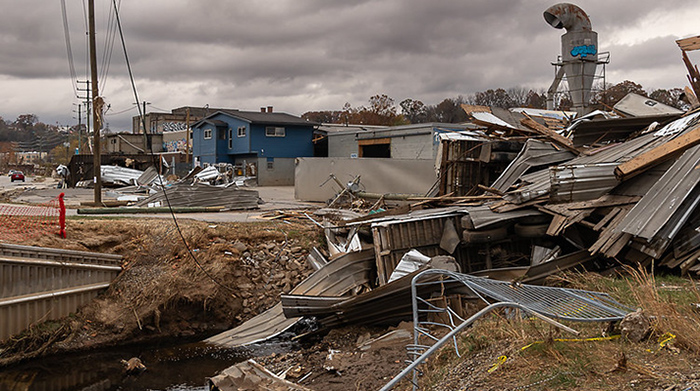How the 2024 Hurricane Season Impacted U.S. Energy Infrastructure

Image courtesy of Bill McMannis under Attribution 2.0 Generic Deed, resized to 700 x 391 pixels.
It’s been documented that the 2024 hurricane season (June 1-Nov. 30) was especially nasty compared to historical averages. NOAA classified 11 storms in 2024 as a hurricane, 5 of which were were labeled as “major” hurricanes (wind speeds of over 110 miles per hour). The historical average is 7 hurricanes and 3 major hurricanes per year.
For today’s blog post, I thought I would provide a snapshot of an analysis of this that was published by the Energy Information Administration (EIA).
Snapshot of the EIA’s Analysis of the 2024 Hurricane Season
The U.S. suffered through 5 large hurricanes in 2024 (Beryl, Debby, Francine, Helene and Milton), with Hurricane Helene and Hurricane Milton wreaking the most havoc.
The impact of these hurricanes to the energy sector was most visible on the electricity side, but Hurricanes Francine, Helene, and Rafael forced the shut in of some oil and natural gas production from fields in the Gulf of Mexico.
The EIA report recorded major disruptions in the Gulf of Mexico region in Sept. and Nov. No issues were recorded for October. The EIA estimates that 16% crude oil production from the Gulf of Mexico was disrupted in Sept. (295k barrels/day), and 5% was disrupted in November (110k barrels/day).
Natural gas production was similarly impacted from these events. The EIA estimates that 11% of natural gas production from the Gulf of Mexico was disrupted in Sept. (0.20 billion cubic feet per day), and 3% was disrupted in November (0.07 billion cubic feet per day).
Of course, the 2024 hurricane season also caused millions of power outages, and billions of dollars in damage to the power grid. These impacts have been well documented across the internet.
In the final analysis, most people agree that the degree to which extreme weather events are occurring is on the rise. Regardless of whether we’re talking about the 2024 hurricane season or future years, the most important thing to do is to have a best-in-class emergency plan that all employees are trained and well versed on.



